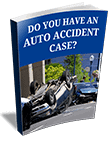What Responsibility Does an Apartment Complex Have Towards Its Residents?
Interviewer: What about a place of residence, such as an apartment complex?
The Owners of an Apartment Complex Are Obligated to Keep All Common Areas Safe
Stephen Boutros: There are two aspects of that. Within an apartment complex, you have the common areas. The apartment complex itself, the corporation or company that owns that, are responsible to keep those common areas safe.
If you are in someone’s home, now you are a social guest, you are not an invitee, you are not there for them to make money off of you, you are there as a guest, so their liability is limited. In fact, we rarely take these cases.
The only time that you can legally be responsible for someone getting hurt on your property, is if you have actual knowledge of an unreasonably dangerous condition. You fail to warn your guest about it, and your guest has no knowledge of that unreasonably condition.
It Is More Difficult to Prove a Homeowner Had Knowledge of a Dangerous Condition
You have a porch and you know that that second step is broken, but it doesn’t look broken, but the second someone steps on it, they step is going to pop up and someone is going to fall hard. You know that.
Now, you have a legal duty at that time to put up a warning sign saying the second step is broken, and warn your guest, because obviously that’s an unreasonably dangerous condition that you know about and your guest couldn’t know about.
It Is Easier to Prove That a Business Had or Should Have Had Knowledge of a Dangerous Condition
Premises liability cases on a business premises are different, because we don’t have to prove that the store actually knew or the business actually knew about the unreasonably dangerous condition. We can prove that they should have known about it. This is because, for example, the grocery store has a spill, and it could be something dangerous. It could be cooking oil on the floor, and it is extremely slippery.
Someone falls and is badly hurt, they can say, “Oh, we didn’t know about that. We didn’t know that that was there.” It would be very hard to prove that they didn’t know.
On those cases we can prove that they should have known. And we can prove that cooking oil had spilled and someone had walked through it and you could see footprints of that cooking oil for 30 feet down the aisle.
You can say, “Well look, that’s been there for 15 minutes. If you didn’t know about it, you had plenty of time that you should have known about it, so you are still legally responsible for the damage that occurred.”
Interviewer: What about accidents in public areas, such as a park?
Stephen Boutros: Those cases fall under the Texas Liability Act. Those are very hard cases because the standard against those cases, against the government, is the same standard as the social guest.
You had to prove that the government actually knew about that unreasonably dangerous condition, and they had no knowledge of the unreasonably dangerous condition. Additionally, the cases against the government are capped on how much damages you can collect.

